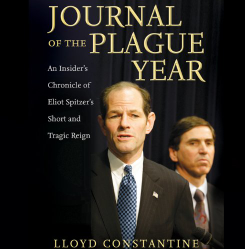From Carter to Santorum, disdain for what America represents
When it comes to divisive and mean-spirited injection of religion into American politics, things have reached a new low — at least from the vantage point of an observer who has watched every presidential election since Eisenhower vs. Stevenson in 1952.
The lowest point in this Death Valley was reached late last month when Rick Santorum, the darling of evangelicals and social conservatives, told us that John F. Kennedy’s landmark 1960 speech about his commitment to honor the Constitution’s separation of church and state made him “want to throw up.”
Of course, Santorum had grossly distorted the meaning of both JFK’s promise and the Constitution by equating them with suggestions that “people of faith have no role in the public square.”
Santorum’s lies — or is it his stupidity? — were merely the lowest and most recent in a race to the bottom among the Republican contenders in this election cycle, where daily we bear witness to polls measuring the suspicion of Mormons by Christian evangelicals and whether they would rather re-elect Barack Hussein Obama, whom they suspect is really Muslim, than elevate Mitt Romney, a proud and clearly professed member of The Church of Jesus Christ of Latter-day Saints.
How did we get to this very bad place in a nation founded upon strict separation?
That belief was evidenced in the “no establishment” first clause of the Constitution’s First Amendment and the “affirmation” alternative to the President’s “oath” of office in Article II, Section 1, Clause 8 — an option selected by Franklin Pierce and Herbert Hoover.
Imagine the ruckus that would envelop a President selecting that constitutional option today. The horrible plummet to where we are began with Jimmy Carter, in my opinion the most inept and second-worst president in the last 80 years.
Carter’s 1976 campaign was filled with his public discussion of how he had been “born again” and his very precise definition of what he meant when describing himself as “evangelical.”
Carter explained, “Of course, evangelical to me is someone who related their experience with Christ and others in hopes that the other person will accept Christ as savior.”
The line could not be straighter from 1976 to 2012, complete with rallies by evangelicals who refer to the Roman Catholic Church as the “Great Harlot,” preach about “the demonic spirit of Islam” and proclaim their fervent desire for a critical mass of Jews to accept Jesus Christ as their savior.
Of course, even if they did, they’d still be Jews to Carter, who referred to three members of his Cabinet — Harold Brown, James Schlesinger and Michael Blumenthal — as “Jewish” because they had merely converted to Christianity.
Blumenthal and his family were Jewish refugees from Nazi Germany, so it was bitterly ironic that Carter adopted the Nazi racial view of Judaism in his categorization of Protestant and Catholic members of his administration as Jews. No escape. Once a Jew, always a Jew.
Carter continued to endear himself to Jews after leaving office by calling the treatment of Arab-Muslim citizens in Israel “apartheid,” including those who serve in the Knesset, Israel’s national legislature.
In Israel, Muslims and, until recently, ultraorthodox Jews are exempt from otherwise compulsory military service. And while there are very serious ethnic tensions and other problems in Israel, its Muslim citizens are freer there than in any other country in the Middle East. Their civil liberties are respected as much, or perhaps more, than they are in the United States.
Carter’s most famous religious exhibitionism came late in the 1976 campaign in a Playboy magazine interview. Citing the Sermon on the Mount, Carter explained that despite avoiding adultery, he was no better than somone who didn’t because many times he had “lusted for a woman outside of marriage.” Too much information, Jimmy.
Carter led the way to this very bad place without intending to do so. Much in the same way that he planned to institute a national health care system and lead the way to energy independence, but failed and inflicted serious damage on both those causes.
Similarly, Carter believed in the strict separation of church and state. He laudably resigned from the Southern Baptist Convention in 2000 in protest of the way that organization had attacked Mormons and proselytized them to become “real” Christians.
But that was because Carter, unlike many in the Convention, considered Mormons to be Christians. And Jimmy couldn’t see how his own proselytizing “in hopes that the other person will accept Christ as savior” would be a problem for the subjects of his efforts. Jimmy Carter is the personification of the saying that “the road to hell is paved with good intentions.”
The great and transformative Kennedy speech that nauseated Santorum was widely credited as both a piece of oratorical genius and a positive turning point in American political life. It was delivered to a group of Southern Baptist ministers in Houston in 1960. And though not all who attended or listened believed Kennedy when he pledged not to allow the Catholic Church to dictate his decisions as president, they — and especially the Baptists — wanted that to be the case.
How far and badly we have fallen from that societal consensus.
While the worst recent embodiment of that decline is Ranger Rick Santorum, it was Jimmy Carter who started it all.
Lloyd Constantine is a Manhattan lawyer. He was a senior adviser to Gov. Eliot Spitzer and is author of several books, including “Journal of The Plague Year” about the Spitzer administration.


0 Comments